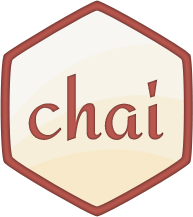Testing Style
- chai:
Chai offers a variety of assertion styles (should, expect, assert), allowing developers to choose the syntax that best fits their preferences. This flexibility enhances readability and expressiveness in tests.
- jest:
Jest embraces a modern testing approach with a focus on simplicity and speed. It uses a BDD-style syntax and integrates seamlessly with React, making it a popular choice for modern JavaScript applications.
- mocha:
Mocha provides a flexible testing style, allowing developers to write tests in a BDD or TDD (test-driven development) style. This flexibility makes it suitable for various testing scenarios.
- jasmine:
Jasmine follows a behavior-driven development (BDD) style, encouraging developers to write tests that describe the behavior of the code. Its syntax is clean and easy to understand, promoting clear test cases.
Built-in Features
- chai:
Chai is primarily an assertion library and does not include a test runner or mocking capabilities. It is designed to be used alongside other testing frameworks like Mocha or Jasmine.
- jest:
Jest includes a test runner, assertion library, and mocking capabilities out of the box. Its integrated features streamline the testing process, reducing the need for configuration and setup.
- mocha:
Mocha is a flexible testing framework that does not include built-in assertions or mocking. Instead, it allows developers to choose their preferred assertion library (like Chai) and mocking tools, providing greater customization.
- jasmine:
Jasmine comes with a built-in test runner, assertions, and spies, making it a complete testing solution without requiring additional libraries. This all-in-one approach simplifies the testing setup.
Performance
- chai:
Chai's performance is generally good, but since it is an assertion library, its speed largely depends on the testing framework it is used with. It is not designed to handle test execution, which may affect overall performance when combined with slower test runners.
- jest:
Jest is known for its fast performance, especially with its parallel test execution and intelligent test running features. It can run only the tests related to changed files, significantly speeding up the testing process.
- mocha:
Mocha's performance can vary based on the chosen assertion library and the complexity of the tests. While it is generally fast, it may require additional configuration to optimize performance for larger test suites.
- jasmine:
Jasmine is optimized for performance and runs tests quickly. Its built-in test runner efficiently executes test cases, making it suitable for large test suites.
Community and Ecosystem
- chai:
Chai has a strong community and is widely used in conjunction with Mocha and other testing frameworks, making it a popular choice for assertion needs in JavaScript testing.
- jest:
Jest has rapidly gained popularity, especially in the React ecosystem. Its strong community support and extensive documentation make it easy to adopt and integrate into projects.
- mocha:
Mocha has a long-standing presence in the JavaScript testing community, with a robust ecosystem of plugins and integrations. Its flexibility allows it to be adapted to various testing needs.
- jasmine:
Jasmine has a dedicated community and is often used in Angular applications. Its popularity ensures a wealth of resources, plugins, and support available for developers.
Learning Curve
- chai:
Chai is relatively easy to learn, especially for those familiar with JavaScript. Its assertion styles are intuitive, making it straightforward to write tests once the developer understands the testing framework it is paired with.
- jest:
Jest is designed to be easy to use, with a focus on simplicity and minimal configuration. Its comprehensive documentation and built-in features help new users get started quickly.
- mocha:
Mocha's learning curve can vary depending on the chosen assertion library and mocking tools. While the framework itself is straightforward, integrating it with other libraries may require additional learning.
- jasmine:
Jasmine has a gentle learning curve, particularly for those familiar with BDD concepts. Its clear syntax and built-in features make it accessible for beginners.




